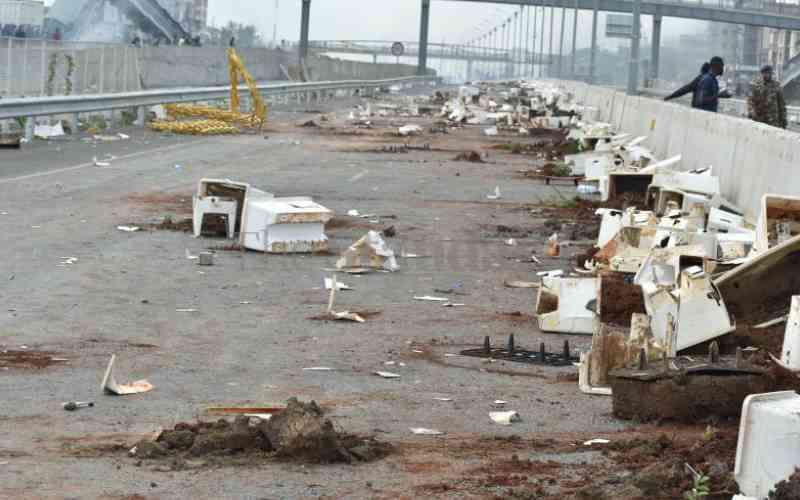×
The Standard e-Paper
Kenya’s Boldest Voice

Protestors who damage or torch buildings in Nairobi and major towns could soon be thrown behind bars for 15 years or pay a fine of Sh15 million.
The proposals are contained in 'Critical Infrastructure Bill 2024' by the Ministry of Interior which has now invited members of the public and stakeholders to give their hand-delivered memoranda by October 22, 2024.







